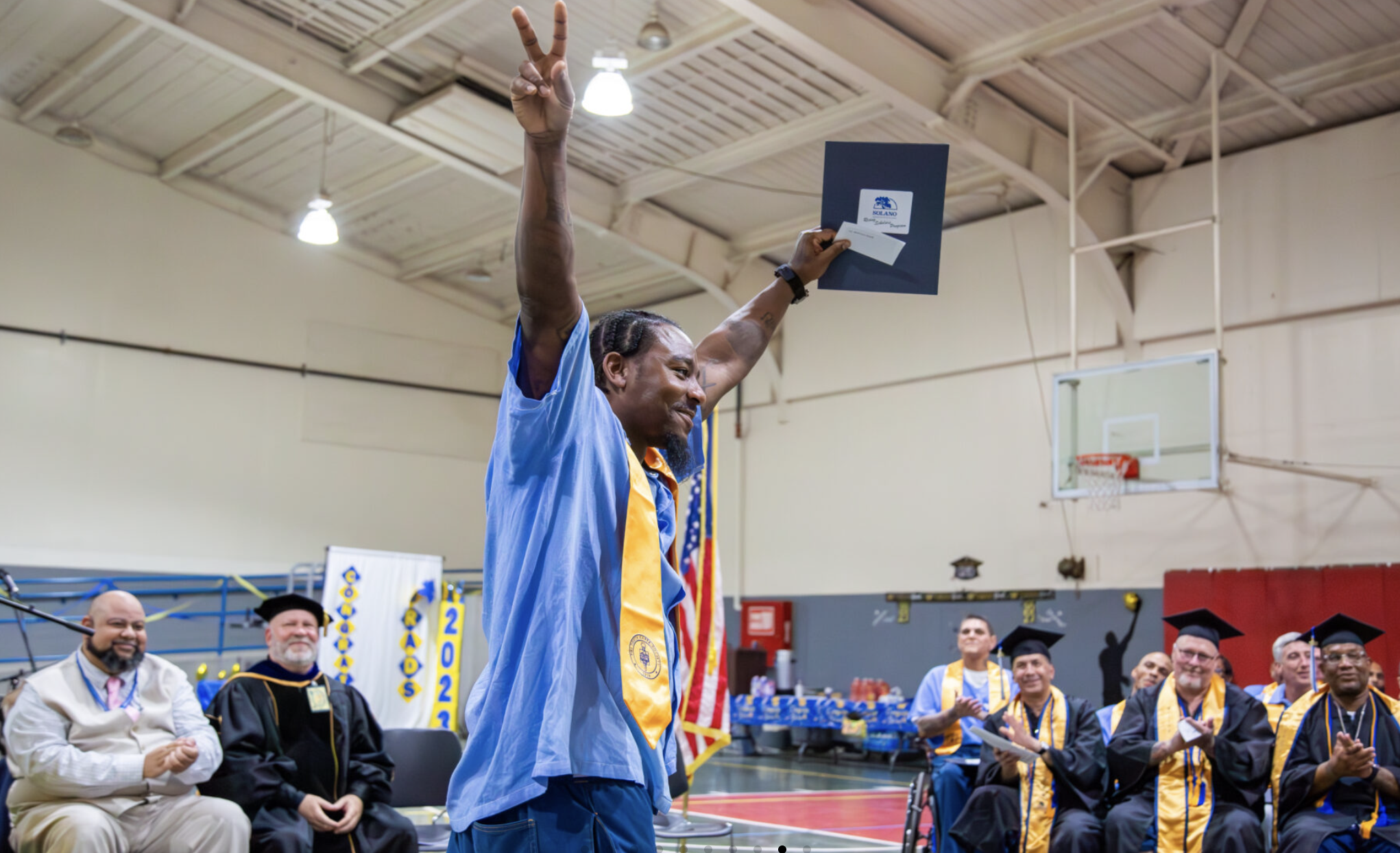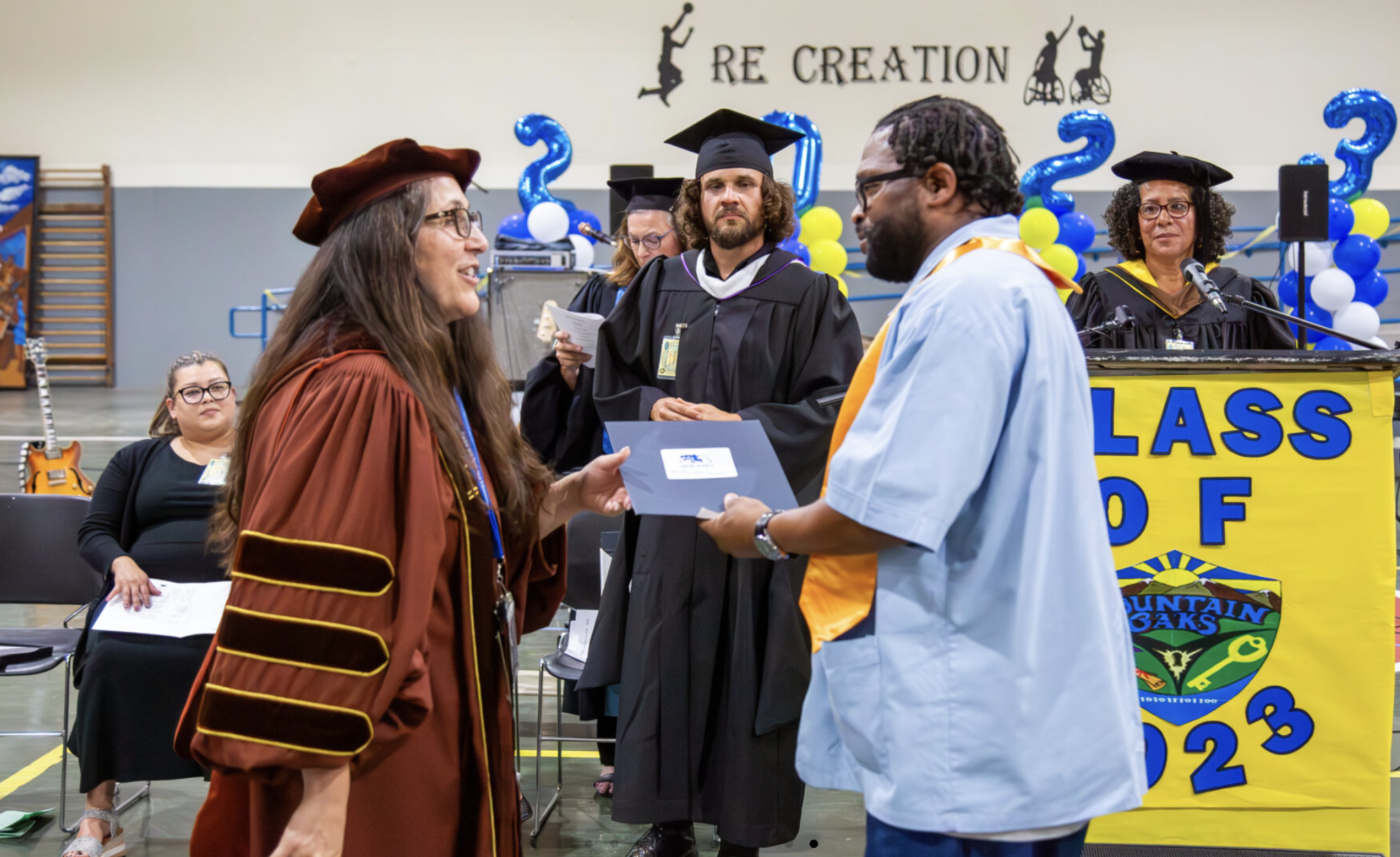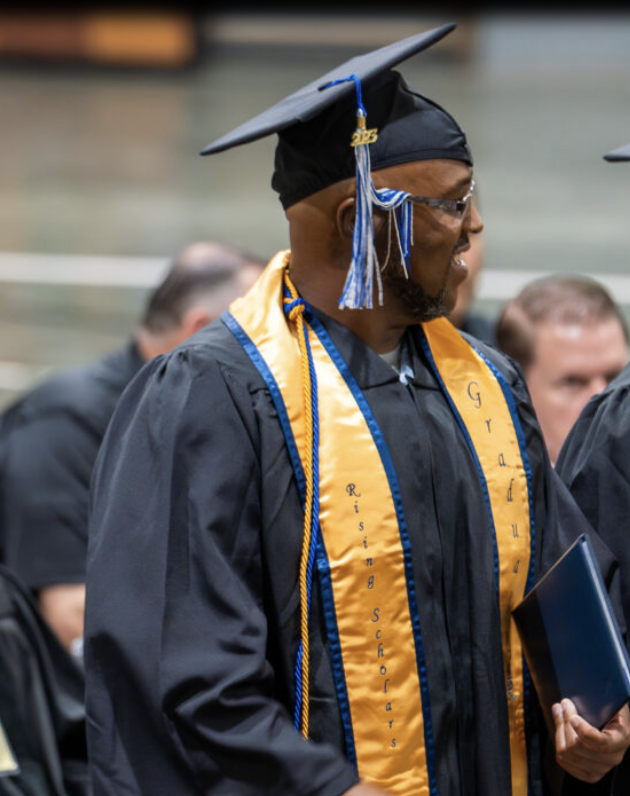Rising Scholars
Contact Rising Scholars
Peter "Tony" Zitko
Dean of External Programs
Peter.Zitko@solano.edu
Anastacia Lamba
Supervisor of External Programs
Jessica Meekins
Admin. Assistant of External Programs
Nic Turney
Rising Scholars Faculty Coordinator
Rising Scholars

California Community Colleges are committed to serving students who have been impacted by the criminal justice system. Colleges supporting these students form the Rising Scholars Network.
At Solano Community College, we proudly serve students at three correctional facilities in Solano County. In the prisons, we offer Associate Degrees for Transfer in Business, Political Science, Psychology, and Sociology.
The Solano Community College Rising Scholars Program serves justice-involved students at California Medical Facility (CMF), California State Prison – Solano (CSPS), and Solano County Jail.
The Rising Scholars team of professors is dedicated to improving the lives of incarcerated students by providing a high-quality education leading to Associates Degrees for transfer. Our Rising Scholar students have the opportunity to earn the following degrees:
- Associate in Science in Business Administration for Transfer
- Associate in Arts in Political Science for Transfer
- Associate in Arts in Psychology for Transfer
- Associate in Arts in Sociology for Transfer

The mission of Solano College’s Rising Scholars Program is to offer a high-quality education leading to transferrable Associates Degree’s to a diverse population of incarcerated students at the correctional institutions served by the college. The SCC Rising Scholar Program is dedicated to enhancing personal development and rehabilitation through education for the
students that we serve. It is our goal to help students attain their academic goals and increase their self-worth, confidence, and employment opportunities. Through education, our objective is to establish lifelong learning characteristics, develop critical thinking skills, improve the lives of our students, and help ensure successful and satisfying reentry into society post-incarceration.
“Providing effective education for incarcerated individuals has several interrelated social benefits. Most notably, educating prison inmates reduces crime. Correspondingly, as crime diminishes, there is less victimization. Furnishing incarcerated college students with an education steeped in 21st century competencies is a pathway for reducing recidivism, stigmas attached to incarceration, and the need for mass incarceration. Higher education is a proven rehabilitation model that helps make society, both inside and outside the prison walls, a safer and more humane environment” (Zitko, 2021, p. 167)
Rising Scholars Network (CCC)
Correctional Education (RAND)
Investing in Futures: Economic and Fiscal Benefits of Postsecondary Education in Prison (Vera Institute of Justice, 2019)
Redesigning Correctional Education to Meet 21st Century Learning Modalities (Zitko, 2021)
Enfranchising the Disenfranchised: Voting Rights for Justice-Involved Persons in the United States (Zitko, 2022)

